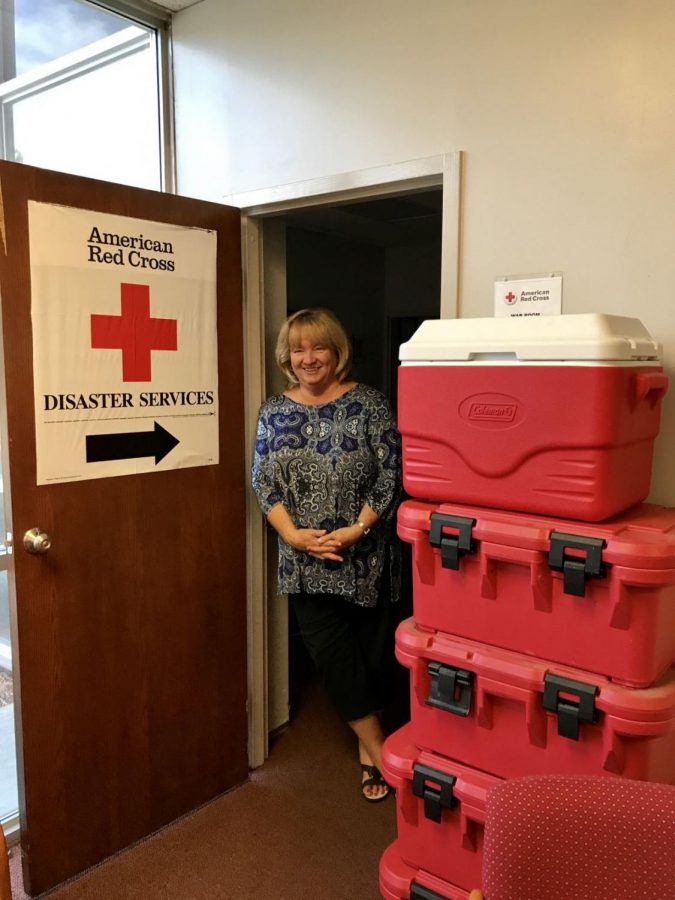American Red Cross there when disaster strikes
September 5, 2017
The Red Cross has worked to assist those in need for over a century through efforts at both a local and national level.
Located just down 17th Street from Washburn, students can easily get involved locally with the Red Cross to help Americans in need all around the world.
Jane Blocher, executive director at the American Red Cross Kansas Capital Area Chapter, shared ways in which community members, specifically college students can give back. The primary three ways are with time, money and blood.
The Red Cross is fully funded by donations and does not receive any government funding. They rely on volunteers to keep their costs low.
“We collect almost half the nation’s blood supply,” Blocher said. “We always have an appeal out for people to roll up their sleeves and give that gift of life at an upcoming blood drive.”
According to the Red Cross website, donors can give blood as often as every 56 days if they meet the minimum health requirements. Blocher said that just one pint of blood has the potential to save three lives.
“It’s the easiest, most significant thing you can do to save a life,” Blocher said.
In addition to donating blood, there is a great need for those who are able to give their time.
Blocher said that the Red Cross currently has about 3000 volunteers on the ground in Texas assisting those impacted by Hurricane Harvey. Additionally, the Red Cross is now also deploying volunteers to Florida for Hurricane Irma.
Red Cross deployments involve two weeks of all-expenses-paid service. It can be anything from working in a shelter setting, bulk distribution or going out into the community to distribute food, water, clean-up kits and comfort kits. Essentially, volunteers do their part to help people get back on the road to recovery following disaster.
Students who deploy serve in a capacity in which they are comfortable. Blocher said some students are really talented in IT, so they will go and help set up communication networks that we have in the shelters and warehouses.
However, those who are unable to deploy also have the opportunity to volunteer on a local level.
“We are always looking for local disaster action team volunteers who can take a couple of shifts a month to be on call,” Blocher said. “When the fire department notifies us that there is a family that has been impacted, that volunteer can go to the scene, interview the family, provide financial assistance and connect them with a volunteer case worker.”
The Red Cross is always looking for monetary donations, too, and say that it is the best way to help during times of major crises. Financial donations allow individuals is crisis to purchase exactly what they need with a debit card from the Red Cross. 91 cents of every donated dollar goes to direct programs and services, the rest goes to overhead costs. That ratio is an industry high, according to Blocher.
The Red Cross has increased its visibility during times of extreme crisis, such as Hurricane Harvey, but Blocher recommends getting involved and getting trained as a volunteer before disaster strikes.
Anyone interested in getting involved with the American Red Cross can contact Ariane Messina, disaster program specialist, at [email protected] or at (785) 354-9244.
Text HARVEY to 90999 to donate $10 to support Hurricane Harvey relief efforts.



